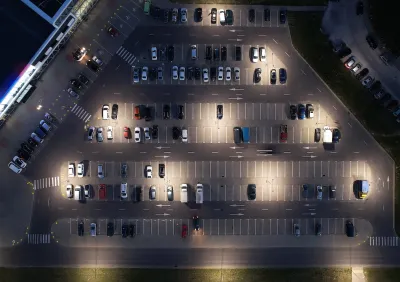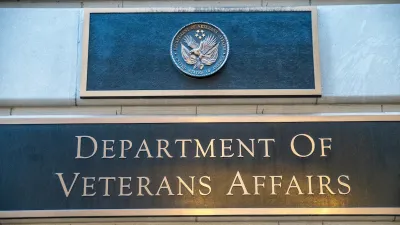The safety and stability offered by Safe Parking sites have helped 40 percent of unhoused San Diego residents who accessed these programs get into permanent housing.

San Diego’s Safe Parking Program made a significant dent in the city’s homelessness crisis, with 40 percent of program participants later transitioning into housing.
The program provides safe, secure lots where people living in their cars can park. These sites provide restrooms and other facilities and offer services to connect residents with housing and other assistance services.
As Brian Perry explains in Maui Now, “Many participants preferred safe parking over traditional shelters, citing increased safety, stability and autonomy.” Across the Pacific in Maui County, Hawaii, local leaders are pointing to the study as evidence that Safe Parking is a “best practice” for responding to the homelessness crisis and offering people services such as “ case management, employment support, housing assistance and basic amenities like restrooms and showers.”
According to the San Diego report, Safe Parking programs can provide the stability and safety that people need to seek and access permanent housing. “Researchers behind the San Diego study recommend expanding safe parking programs to operate 24/7, increasing the number of case managers and providing ongoing staff training. They also advocate for federal recognition and funding of safe parking programs as an official homelessness intervention.” Researchers point out that safe parking programs work best in conjunction with a successful social support system.
FULL STORY: ‘Safe parking’: A 2024 study reports favorable outcomes in curbing homelessness

Planetizen Federal Action Tracker
A weekly monitor of how Trump’s orders and actions are impacting planners and planning in America.

Congressman Proposes Bill to Rename DC Metro “Trump Train”
The Make Autorail Great Again Act would withhold federal funding to the system until the Washington Metropolitan Area Transit Authority (WMATA), rebrands as the Washington Metropolitan Authority for Greater Access (WMAGA).

The Simple Legislative Tool Transforming Vacant Downtowns
In California, Michigan and Georgia, an easy win is bringing dollars — and delight — back to city centers.

The States Losing Rural Delivery Rooms at an Alarming Pace
In some states, as few as 9% of rural hospitals still deliver babies. As a result, rising pre-term births, no adequate pre-term care and harrowing close calls are a growing reality.

The Small South Asian Republic Going all in on EVs
Thanks to one simple policy change less than five years ago, 65% of new cars in this Himalayan country are now electric.

DC Backpedals on Bike Lane Protection, Swaps Barriers for Paint
Citing aesthetic concerns, the city is removing the concrete barriers and flexposts that once separated Arizona Avenue cyclists from motor vehicles.
Urban Design for Planners 1: Software Tools
This six-course series explores essential urban design concepts using open source software and equips planners with the tools they need to participate fully in the urban design process.
Planning for Universal Design
Learn the tools for implementing Universal Design in planning regulations.
Smith Gee Studio
City of Charlotte
City of Camden Redevelopment Agency
City of Astoria
Transportation Research & Education Center (TREC) at Portland State University
US High Speed Rail Association
City of Camden Redevelopment Agency
Municipality of Princeton (NJ)





























